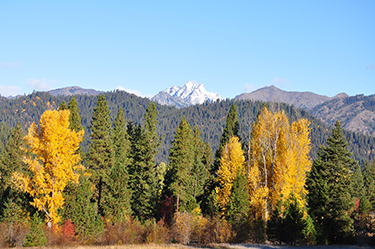|
Subscribe / Renew |
|
|
Contact Us |
|
| ► Subscribe to our Free Weekly Newsletter | |
| home | Welcome, sign in or click here to subscribe. | login |
Environment
| |
 |
September 26, 2013
Surveys 2013: Plauche & Carr LLP
Specialty: Legal counsel related to environmental, land-use, maritime, conservation transactions and water resource issues
Management: Partners Samuel W. “Billy” Plauche, Amanda M. Carr, Peter H. Dykstra
Founded: 2009
Headquarters: Seattle
Current projects/clients: Legal counsel to Pacific Coast Shellfish Growers Association; outside counsel to the state of Louisiana’s Natural Resource Trustees for injury assessment and restoration planning related to the Deepwater Horizon Oil Spill; counsel to a consortium of conservation organizations on the largest conservation real estate acquisition in 50 years in Washington state, the Teanaway Community Forest Trust
Plauche & Carr partner Amanda Carr responded to questions about her company and environmental legal issues.
Q: What is the biggest issue you are dealing with?
A: The regulation and use of natural resources would greatly benefit from a shift in focus toward valuing the benefits that natural resources provide. As a society, we are beginning to see this shift, with increasing investment in these services, such as improving water and air quality, preventing erosion, sequestering carbon, and moderating weather extremes. This need spans the breadth of our practice, from working with shellfish growers challenged by impaired water quality and ocean acidification to nonprofit organizations, private companies and governments working to address environmental issues through alternative solutions involving banking, conservation transactions and public-private partnerships.
Q: How did the recession change your business, and natural resource-related legal issues?
A: Billy Plauche and I founded the firm in 2009, in the midst of the recession, because we saw an opportunity for more flexibility in how attorneys approach their work. From a business perspective, the recession made consumers of legal services more careful, focusing on addressing inefficiencies and seeking alternatives to the traditional law firm billing structure. We see this as a positive shift that values our more flexible billing strategy.
From a natural resource perspective, with the recession came a shift from stricter regulation as the exclusive means of improving environmental quality toward more creative, market-based approaches, like an increased emphasis on mitigation banking and public-private partnerships.
Q: Is there too much regulation or not enough?
A: We have gone about as far as we can go under the current approach to regulation, which almost universally places the environment and the economy at odds with each other. Instead of looking at more or less regulation, we believe a different approach to regulation altogether is needed — one that is framed around the valuation of, and investment in, natural resource benefits.
Such a system involves improving natural resources and emphasizing the benefits they provide, such as creating new marsh, which benefits water quality and habitat for endangered waterfowl, or a new shellfish farm, which benefits water clarity and fish habitat. This offsets the negative impacts of other regulated activities, such as discharges from a sewer treatment plant or storm runoff from impervious surfaces in a new development.
Q: How can environmental issues affect the businesses you work with?
A: Many of our clients depend on a healthy environment to sustain their livelihoods, their culture and their communities. For example, the state of Louisiana is undergoing a coastal land loss crisis, losing almost a football field of wetlands every hour, putting at risk thousands of jobs, valuable habitats and ecosystems, fisheries, and entire communities. Our shellfish clients’ livelihoods are threatened by ocean acidification and are dependent on clean water. Conservation organizations are working to preserve large areas of working forest to ensure long-term preservation of these areas remains economically viable.
Other Stories:
- Wastewater plant cleaned up for the 21st century
- What’s next in green building? Seattle has it
- Surveys 2013: Optimum Energy
- Surveys 2013: GeoEngineers
- Surveys 2013: Cascadia Consulting Group
- Surveys 2013: Hart Crowser
- Surveys 2013: Innovex Environmental Management
- Surveys 2013: Shannon & Wilson
- Lower your energy bill by 75% with a Passive House
- Dairies struggle to balance business and the environment
- Murky floodplain rules sink development plans
- Is your data center as green as it can be?
- Protecting Puget Sound’s marine shorelines
- At the UW, smart grids put a lid on energy use
- Rising sea level threatens Port Gamble tribe
- Surveys 2013: Ridolfi Inc.



